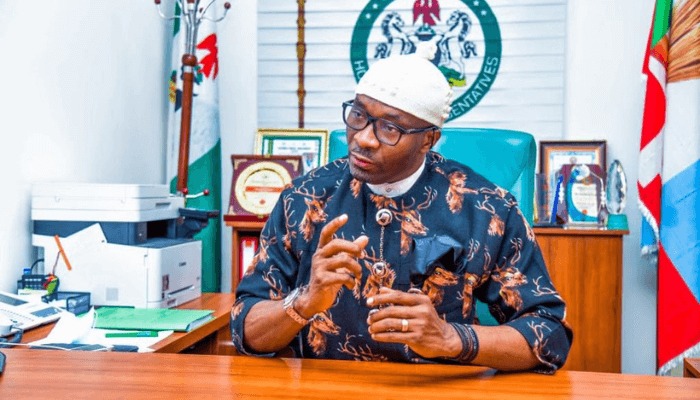 Deputy Speaker of the House of Representatives, Benjamin Kalu, has revealed that none of the 31 state creation requests received by the House Constitution Review Committee met the constitutional requirements for amendment. Speaking at a two-day retreat in Ikot-Ekpene, Akwa Ibom State, Kalu, who chairs the committee, stated that the applications failed to align with the conditions specified in Section 8 of the Nigerian Constitution.
Deputy Speaker of the House of Representatives, Benjamin Kalu, has revealed that none of the 31 state creation requests received by the House Constitution Review Committee met the constitutional requirements for amendment. Speaking at a two-day retreat in Ikot-Ekpene, Akwa Ibom State, Kalu, who chairs the committee, stated that the applications failed to align with the conditions specified in Section 8 of the Nigerian Constitution.
Although 31 state creation proposals had been submitted, Kalu emphasized that they did not meet the legal criteria for the constitutional amendments process. He also noted that the committee had extended the submission deadline to March 5, 2025, though they would consider further extensions if challenges persist.
A key hurdle in the review process, according to Kalu, was the duplication of bills. Some proposals were repeated under different sponsors, while others overlapped in subject matter. To address this issue, the committee categorized the bills into thematic areas, including Federal Structure and Power Devolution, Local Government Autonomy, Public Revenue, Fiscal Federation, Revenue Allocation, Nigerian Police and Security Architecture, Comprehensive Judicial Reforms, Electoral Reforms, Gender Issues and Human Rights, and state creation.
This categorization, Kalu explained, would help lawmakers prioritize the amendments based on national interest and legislative importance. Recognizing the strong connection between constitutional amendments and electoral reforms, he invited the leadership of the House and Senate Committees on Electoral Matters to the retreat.
Kalu stressed that any changes to the Electoral Act requiring constitutional amendments would need to pass through the committee, ensuring a seamless and cooperative legislative process for comprehensive reforms.
Looking ahead, Kalu outlined plans for zonal and national public hearings across Nigeria’s six geopolitical zones. The hearings will provide a platform for Nigerians to voice their opinions and contribute to the amendment process. Locations include the North-central (Nasarawa and Niger States), North-east (Borno and Gombe States), North-west (Kaduna and Sokoto States), South-east (Enugu and Imo States), South-south (Bayelsa and Cross River States), and South-west (Lagos and Ondo States).
Kalu urged members of the committee to engage with the bills thoroughly and objectively, ensuring that the final amendments reflect the will of the people. “As legislators, we must ensure that Nigerians’ voices are reflected in constitutional reforms,” he said. Reaffirming his commitment to a transparent and inclusive review process, Kalu expressed confidence that the committee’s work would strengthen Nigeria’s democracy and governance system.